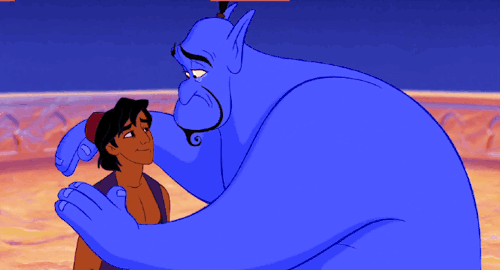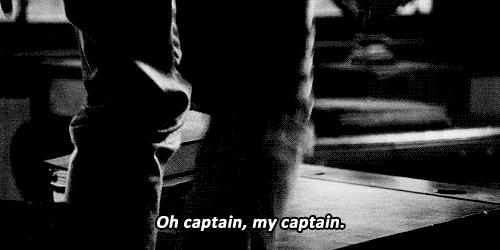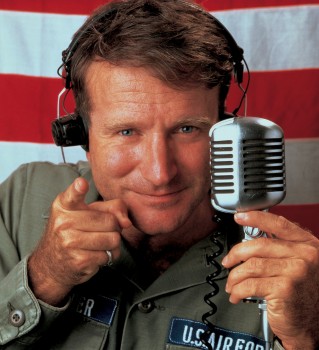I don’t usually blog about current events, much less celebrity deaths. When the newspapers are filled with school shootings and police shootings and dead Palestinian children and natural disasters, spending time mourning a famous person seems worse than trivial.
But it is a queer thing to cry for a stranger. To feel tears running down your cheeks and an ache in your chest for someone you never met, someone you only know through their on-screen performances. To feel genuinely heartbroken about the suicide of a famous person. But that is how I feel about Robin Williams’ death, and if the lachrymose outpouring on social media is any indication, I’m not the only person grieving for the late actor and comedian.
I never met Robin Williams, but he was a fixture in the pop culture of my childhood and an icon for my generation. He outran a stampede of animatronic jungle animals in Jumanji. His manic, ebullient, and mercurial voice-acting brought Genie to life in Aladdin. He hilariously cross-dressed as a Scottish nanny to spend time with his children in Mrs Doubtfire. And when I was older, he sat on a bench in the Boston Public Garden and said to a young and arrogant genius, “You’re just a kid. You don’t have the faintest idea what you’re talkin’ about.” He taught a group of young men about loving literature, about standing up for what they believed in, about seizing the day. “That the powerful play goes on, and you may contribute a verse.”

Genie, you’re free.
And that’s just to name a few.
I’m not sure precisely why Robin Williams’ suicide has affected me so deeply. Like all celebrity deaths, there is an element of admiration for his work, and disappointment that he will not create anything new. Basic grief for a bright light snuffed out too soon. Sympathy and sorrow for the family and friends left to go on without him. But that’s not all. I think the worst part, for me, is the terrible, poignant irony that Robin Williams, who brought joy and laughter and light to millions of people for decades on end, could not keep himself from slipping into the darkness.
I think I knew deep down, even as I laughed at his antics and wept at his serious monologues, that Robin Williams struggled with depression, drug addiction, and alcoholism. A sort of dark duality simmering beneath the crackle of manic energy. He was the type of person who would leap onstage at a TED Conference and treat the audience to 20 minutes of improvised comedy while the staff resolved technical problems. He was also the type of person whose smile never quite reached his eyes. A glittering talent overlaying a well of melancholy.
https://www.youtube.com/watch?v=6s26WxsgyKE
Eventually, he drowned in that well. Depression is cruel, and it is random. It can be inherited, like blue eyes or bad teeth or schizophrenia. It can pop up at anytime, in any circumstance, in any person. It does not discriminate against age, or race, or gender. It cares nothing for money or fame. It is invisible, and it can be fatal. It is not a state of mind–it is a disease. Do you tell a man with a broken arm, man up? Do you say to a woman with cancer, count your blessings, look on the bright side? No. You help them get help for their maladies, and you support them along the way. There is help, too, for depression, but it must be asked for, and it must be given.
My heart is bruised for Robin Williams, and I can’t imagine the years of pain he endured. Without him, the world is a little darker, a little quieter, a little sadder. But he was not mine; he was not ours. That irrepressible energy, that childlike sparkle, that wit and that charm almost seemed to exist on a different plane, tapping into something extraordinary and magical and impossible. But everything has its end. He gave us what he had, and now he’s gone. And there are only so many words.

“O Captain! My Captain! Our fearful trip is done.” Goodbye, Robin Williams, and know we loved you well.
If you suffer from depression or have suicidal thoughts, please call the National Suicide Hotline at 1-800-273-8255.

0 Comments